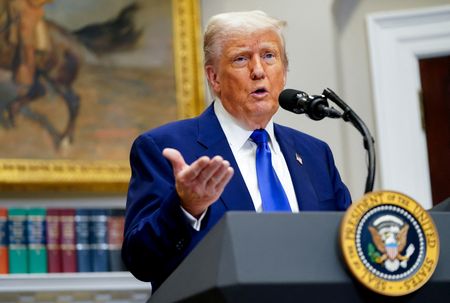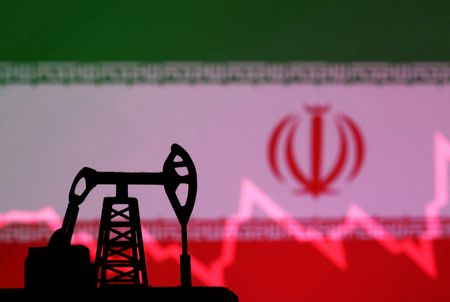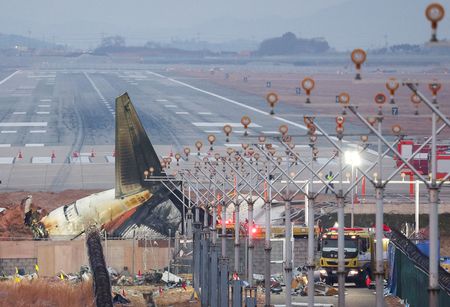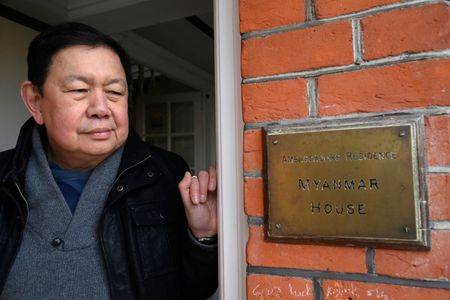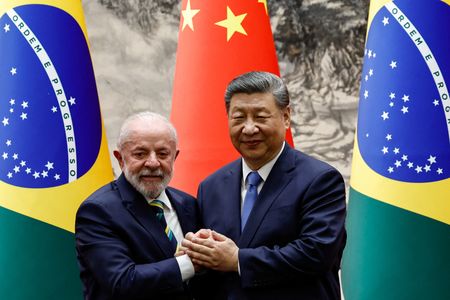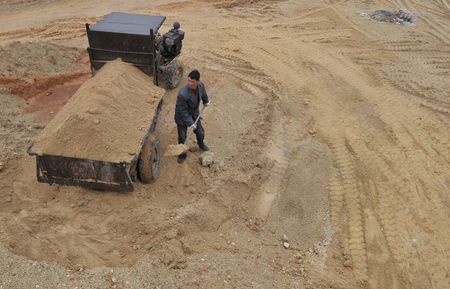TAIPEI (Reuters) -U.S. President Donald Trump’s comment on “unification” was about the U.S.-China trade relationship and U.S. policy toward Taiwan has not changed, the de facto U.S. embassy on the island said on Tuesday, after the wording caused unease in Taipei.
China claims democratically governed Taiwan as its own territory and has vowed to “reunify” with the island, by force if necessary. Taiwan’s government rejects Beijing’s sovereignty claims, saying only the island’s people can decide their future.
Washington and Beijing agreed on Monday to slash steep tariffs for at least 90 days, pausing their trade war, a move Trump praised when speaking to reporters at the White House.
“They’ve agreed to open China, fully open China, and I think it’s going to be fantastic for China, I think it’s going to be fantastic for us, and I think it’s going to be great for unification and peace,” he said, without mentioning Taiwan.
The American Institute in Taiwan, which operates as a de facto embassy in the absence of formal diplomatic ties, said in a statement that Trump was speaking about U.S.-China trade.
“It’s clear President Trump was speaking in the context of the U.S.-China trade relationship,” a spokesperson said. “U.S. policy on Taiwan remains the same, and the U.S. approach to Taiwan has remained consistent across decades and administrations.”
A White House National Security Council spokesperson reiterated that Trump “was clearly referring to U.S.-China trade relations”.
Taiwan’s presidential office, in a separate statement, noted the U.S. comment that Trump was referring to trade talks with China and not Taiwan.
“The U.S. commitment to Taiwan remains strong and unchanged,” spokesperson Karen Kuo said, adding that Taiwan’s understanding was that the U.S.-China trade talks did not touch on Taiwan-related issues.
Trump’s remarks created concern in some government and diplomatic circles in Taiwan about whether U.S. policy towards the island had changed, seven sources told Reuters.
“Is he going to change the status quo, accepting the annexation of Taiwan?” one of the sources said, a senior official who declined to be identified due to the sensitivity of the matter.
The U.S. government only officially recognises the government in Beijing, and does not take a position on Taiwan’s sovereignty, only acknowledging China’s position on the subject under Washington’s long-standing “one China policy”.
Washington is bound by law to provide Taiwan with the means to defend itself, and has repeatedly expressed condemnation of stepped up Chinese military activities, including the latest round of war games in April.
(Reporting by Ben Blanchard, Yimou Lee and Michael Martina; editing by Mark Heinrich)

